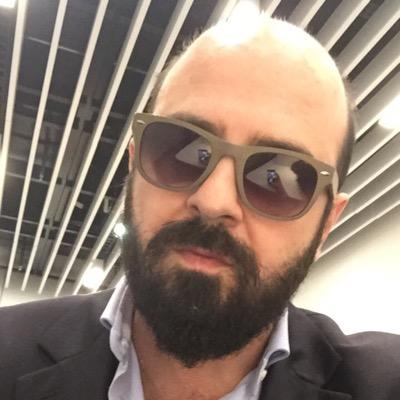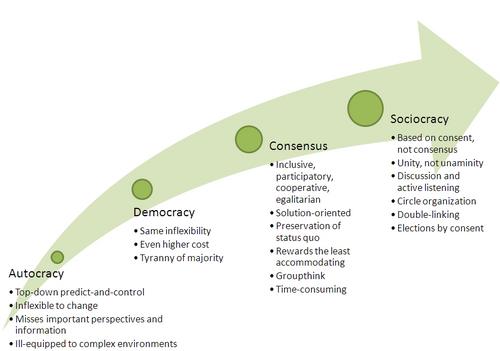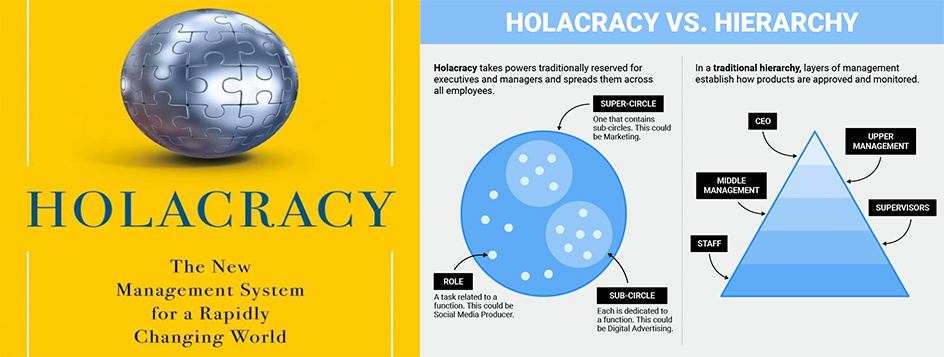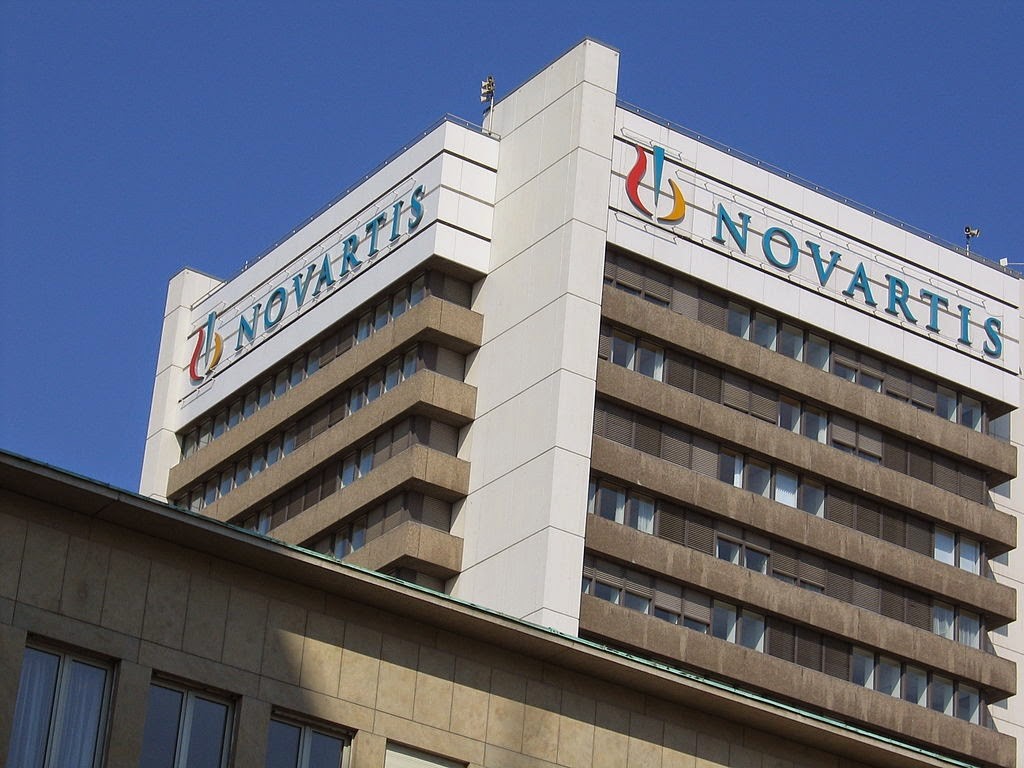
“My company helps companies to overcome traditional hierarchical models”. So Francesco Frugiuele, co-founder of "KopernicanExternal Link” immediately enters the subject to explain the activity of his company.
 “All of civil society – he tells us Francesco Frugiuele – had been functioning according to the hierarchical pyramid paradigm for a thousand years. The common sense of the first industrialists led them to adopt the only model available for organizing complex systems: a hierarchical pyramid of people that channeled decisions from the top down and information from the bottom up, thus guaranteeing a certain ability to direct the entire system according to the wishes of its top management”.
“All of civil society – he tells us Francesco Frugiuele – had been functioning according to the hierarchical pyramid paradigm for a thousand years. The common sense of the first industrialists led them to adopt the only model available for organizing complex systems: a hierarchical pyramid of people that channeled decisions from the top down and information from the bottom up, thus guaranteeing a certain ability to direct the entire system according to the wishes of its top management”.
Now this model is much questioned. Are there alternative models that are already viable today? The answer is affirmative, Francesco Frugiuele confirms: “Yes, it exists, and it's not anarchy, but self-management”. It is simply a matter of changing the point of view.
In general, the new alternative models grant collaborators great autonomy, limiting as much as possible the hierarchical dependence on the top management of the company. “The responsiveness of a company or an organization – clarifies Frugiuele – lies in the people, in every single employee. Not in cars, not in technology." Today these alternative models are called Sociocracy, Holacracy, S3, COS, just to name a few.
The model, which is also used by the Kopernicana itself, therefore provides for a very high level of autonomy for each individual person. Such an organization evidently requires some preconditions: a very great transparency within the company and among the employees, an equally great clarity of the roles and responsibilities that each one carries upon himself so that he can do his job in the best possible way.
These new organizational paradigms make it possible to increase the quality of work because, as Frugiuele points out, "the only element that companies have to generate quality is the competence and ability of the people".
In traditional companies, normally people's motivation tends to go down, not why not  have the expertise to do the job, but why do people wonder “why do I have to put all of myself into something whose values I don't share or I simply don't share the results?”. With greater responsibility for the individual, these motivations instead of diminishing, increase.
have the expertise to do the job, but why do people wonder “why do I have to put all of myself into something whose values I don't share or I simply don't share the results?”. With greater responsibility for the individual, these motivations instead of diminishing, increase.
And we're not just talking about small businesses. In Switzerland, to give an example, adds Frugiuele, "the pharmaceutical giants such as Novartis and Roche. Amazon has also made its collaborators more independent”.
Among the key points of "self management", much emphasis is placed on transparency. As Francesco Frugiuele points out, “radical transparency is needed as regards internal communication, strategic principles, remuneration and incentive mechanisms, quarterly and annual objectives”. Furthermore, all information is made available, if not to everyone, at least to those who need it to make decisions.
This transparency also applies to salaries. Not only. It even comes to self-determination of wages.
Note:
 There Sociocracy, also known as Dynamic Governance, is a management system that aims to arrive at solutions that create both a socially harmonious environment and productive organizations and enterprises. It is distinguished by the use of "assent" rather than the majority vote when making decisions, and by the moment of debate that takes place, before the moment of decision, between the people involved who have a relationship of collaboration, knowledge and a common purpose.
There Sociocracy, also known as Dynamic Governance, is a management system that aims to arrive at solutions that create both a socially harmonious environment and productive organizations and enterprises. It is distinguished by the use of "assent" rather than the majority vote when making decisions, and by the moment of debate that takes place, before the moment of decision, between the people involved who have a relationship of collaboration, knowledge and a common purpose.
Sociocracy (originally called: Sociocratic Circle-Organization Method or SCM) was developed in Holland by Gerard Endenburg, electronic engineer and entrepreneur, and is a revision of the original approach developed by Betty Cadbury and Kees Boeke, educators and peace activists.
S3 it is a framework [management system] with an open software structure, which offers many documentary resources to organizations that want to improve, with a collaborative approach.
S3 starts with the basics of sociocracy and how people can use 70 models to respond to various challenges and opportunities in their organizations. An organization can apply these models to various activities, such as conducting effective meetings, administering and coordinating employee duties and functions.
These models are modular and complementary. They are also flexible and can be combined to make
evolve the organization according to its needs. In this sense, the framework proposed by S3 is less restrictive than the sociocratic circle method since it focuses on where the organization is, without radical changes.
 Holocracy. Holacracy it is a social technology or organizational system of governance in which authority and decisions are distributed within one holarchy of self-organized groups rather than fixed in a managerial hierarchy. Holacracy is an organizational form that is adopted by businesses and non-profit entities in various countries: the United States, France, Germany, Switzerland, New Zealand, Australia and the United Kingdom. “Holarchy” in the terminology of Arthur Koestler, is a connection between two holons, in which the holon is both a part and a whole.
Holocracy. Holacracy it is a social technology or organizational system of governance in which authority and decisions are distributed within one holarchy of self-organized groups rather than fixed in a managerial hierarchy. Holacracy is an organizational form that is adopted by businesses and non-profit entities in various countries: the United States, France, Germany, Switzerland, New Zealand, Australia and the United Kingdom. “Holarchy” in the terminology of Arthur Koestler, is a connection between two holons, in which the holon is both a part and a whole.
Editor's note: organizational models are theoretical simplifications that do not take into account the infinite versions that exist in operational reality. Companies are different from each other and it would be impossible to describe a company organizational model created ad hoc on a case-by-case basis. We can say that these models represent a starting point for managing the organization of the company.
The first step is therefore to identify the elements of the organizational model best suited to your business. It is important not to delude or make fun of workers as in case of some companies who affirm that with a bottom-up methodology they would be able to link the objectives of individuals with those of the company to increase the sense of belonging to the company, involving employees more in relation to the balance of their skills. In reality mental conditioning with the apparent condition of freedom to set one's own objectives but implemented with continuous control over the achievement of the objective which does nothing but remove the sense of belonging.
A happy worker is, in fact, a more productive worker, and a new perspective of human resource management revolves around this assumption.
_________________________
Related news:
Novartis, profound reorganization
The Basel giant wants to reduce costs by one billion within two years also with internal mergers – Several managers announce their departure
 Reducing costs by at least one billion dollars by 2024: this is the goal of a reorganization announced today, Monday, by Novartis. The pharmaceutical giant from the Rhine intends in particular to merge the two pharmaceutical and oncology units, in order to then create as many independent marketing entities. They will have the name of Medicines US and Medicines International, the first oriented to the American market, the second to other countries.
Reducing costs by at least one billion dollars by 2024: this is the goal of a reorganization announced today, Monday, by Novartis. The pharmaceutical giant from the Rhine intends in particular to merge the two pharmaceutical and oncology units, in order to then create as many independent marketing entities. They will have the name of Medicines US and Medicines International, the first oriented to the American market, the second to other countries.
The new Strategy and Growth unit will instead deal with strategy, research and development, while the current sections Technical Operations as well as Customer & Technology solutions will be merged, to give life to the Operations sector.
As part of the reorganisation, three top executives have announced their departures. They are Susanne Schaffert, previously head of oncology, Robert Weltevreden, number one of Customer & Technology Solutions, and John Tsai, who is the current medical director.





